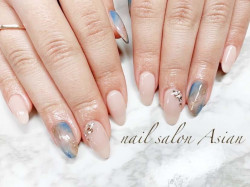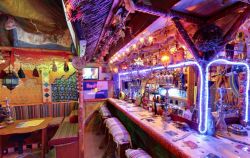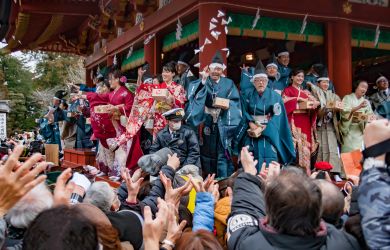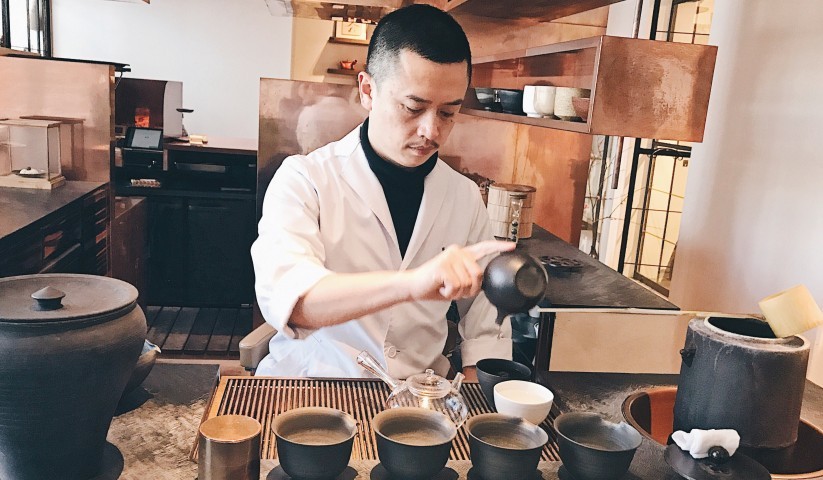
Let your tastebuds experience the transition from traditional Japanese tea to today’s modern-day blends. Even in Tokyo’s hyper-urban sprawl, you can find pockets of quiet to savor the combination of rich teas and the delicate Japanese sweets, perfectly formulated from a rich legacy of this ancient beverage.
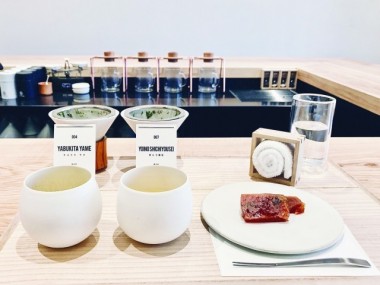
Tokyo Saryo
Tokyo’s first green tea drip café, Tokyo Saryo, opened its doors this January in the affluent neighborhood Sangenjaya, with the aim to promote good green tea to the younger generation. Everything about this sleek, minimalist café exudes an air of simplicity and serenity, from its interior décor and furniture, to its tableware, cutlery, and of course, its teas.
There are currently seven teas available, with plans to bring in more, such as uji and sayama green teas. Each tea is steeped three times at varying temperatures: the first at 70°C, the second at 80°C, and the third at 90°C with roasted genmai (brown rice) that emanates a robust smokiness. The most popular teas are 001 Harumoegi and 007 Yoino Shichiyousei. The former is a clear and light traditional tea, while the latter is a little sweeter and smoother on the palate; both are extremely easy to drink. My personal favorite, 004 Yabukita Yame, is a tea full of umami aromas that I was instantly captivated by. Each steeping only served to deepen its flavors, and strengthen its bitter nuances.
For the full experience, opt for the yōkan (Japanese thick jellied dessert) of dried fruit and nut, their version of the traditional yōkan commonly served with green tea.
Tokyo Saryo. 1-34-15 Kamiuma, Setagaya-ku. Sangenjaya. Tue-Fri 1pm-8pm; Sat-Sun 11am-8pm.
Sakurai Japanese Tea Experience
Situated on the fifth level of Spiral Building, it’s hard to imagine this tranquil space exists within bustling Omotesando. Upon entering and getting one whiff of the heady aroma of teas in the air, one immediately feels a sense of calm and time seems to come to a standstill.
This intimate eight-seater offers an extensive menu of Japanese teas, ranging from the commonplace sencha to premium grade matcha and original house blends. There is an aura reminiscent of traditional medicinal uses of tea—servers are dressed in pressed white lab coats, teas are brewed in giant round-bottomed lab flasks, and their leaves are displayed in glass test tubes.
The tea shop offers à la carte and several tea courses for a tasting experience of premium single origin teas, as well as original house blends such as gobo (burdock root) with Japanese black tea and fermented green tea with ginger and mikan (tangerine). I particularly enjoyed the houjicha, a type of Japanese green tea roasted in a porcelain pot over charcoal instead of the usual steaming process, resulting in hints of smokiness that blends beautifully with the well-rounded softness of green tea. It is best paired with wagashi (traditional Japanese confections): the preserved red date with walnut and cream cheese, and ichigo daifuku (mochi stuffed with strawberry).
Sakurai Japanese Tea Experience. Spiral 5F, 5-6-23 Minami-Aoyama, Minato-ku. Omotesando. Tel: 03-6451-1539. Mon-Fri 11am-11pm, Sat-Sun 11am-8pm.
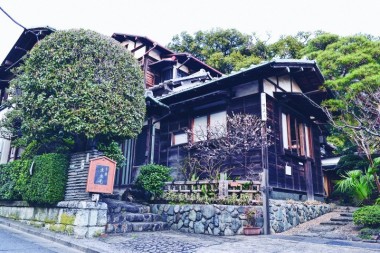
Koso-an
The first thing that struck me about Koso-an was its architecture. Built by tennis buddies Watanabe Hirohiko and Matsuoka Nobuo in 1945 in the Showa Era with the aim of providing a place of relaxation after their games, Koso-an was structured with sentimental meaning, using Watanabe’s favorite mulberry timber obtained from Nagaoka in Niigata Prefecture. The teahouse and gallery were later introduced in 1999 to offer respite for those tired of Jiyugaoka’s cityscape. Folk craft and antiques displayed around the teahouse create an ambience reminiscent of traditional tea ceremonies.
There are 10 options on the menu, all of which come with houjicha and wagashi. For a taste of Japanese tradition, I recommend the matcha, shiratama zenzai (dango with red bean soup), and anmitsu (agar jelly dessert served with Japanese sweet red bean paste and black honey syrup) if you prefer something sweeter. The sweetness of wagashi truly complements the subtle fragrance and roast flavors of the tea.
Koso-an. 1-24-23 Jiyugaoka, Meguro-ku. Jiyugaoka. Mon-Sun 11:30am-6:30pm.
